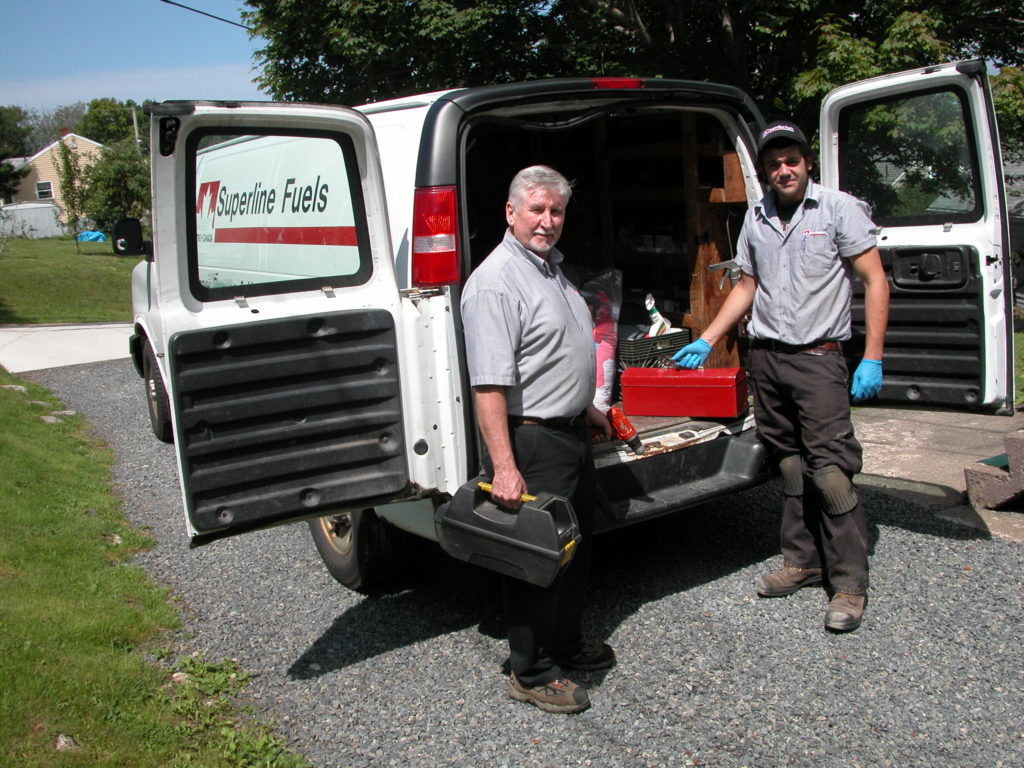Even when you do everything you can to make sure your home is in tip top shape issues can arise without any warning that need to be dealt with as soon as possible. Oil tanks leaks are one of the things all homeowners with oil heating systems should be on the lookout for. While the latest materials in new tanks help to keep your oil tank leak free there’s still a chance an issue could develop. That’s why it’s very important to make sure you have regular cleanings and inspections of your tank to keep the possibility of a leak lower, but if you do discover one here are the steps you should take to make sure everything is cleaned and fixed up.
First things first, you’ll want to contain the oil leaking from your tank. Grab a bucket and place it under the leak to catch the oil. If your oil tank is inside your house, you’ll also want to ventilate the area until the oil is cleaned up.
Next turn off power to your system and the oil shut off valves. You don’t want to aggravate the issue by having the system still on, plus with a leak it won’t be running optimally and could be costing you more money.
Call your heating service company. You don’t want to wait to get this fixed while your tank is still leaking and your system is turned off. They can make sure everything is dealt with efficiently so you won’t be out in the cold too long.
Inform your insurance company as soon as possible for the best chance of getting repairs or replacements of your tank covered by your plan.
Dealing with an oil tank leak quickly is important if you want your heating system running smoothly again. But how can you recognize a leak before the issue gets worse?
If you see or smell oil in your house you probably have a leak somewhere. It’s easiest to spot leaks from indoor tanks; regular inspections of your tank can mean finding a leak before it becomes a major issue.
Outdoor tanks can be a different story, as you won’t necessarily see or smell the oil. Contaminated well water is an indication of an outdoor oil tank leak. If you’re doing any construction that requires digging, soil that smells like oil could be another sign of a leak.
Regardless of where your tank is, you’ll want to keep an eye on your oil consumption. Are you running out of oil more often than usual? Knowing your patterns of consumption can help determine whether there may be an issue with your system when you stray from your usual pattern.
West Nova Fuels and Superline Fuels customers don’t have to worry too much when it comes to emergency services like oil leaks. Our 24 hour service promise means we’ve got you covered when a crisis hits!
